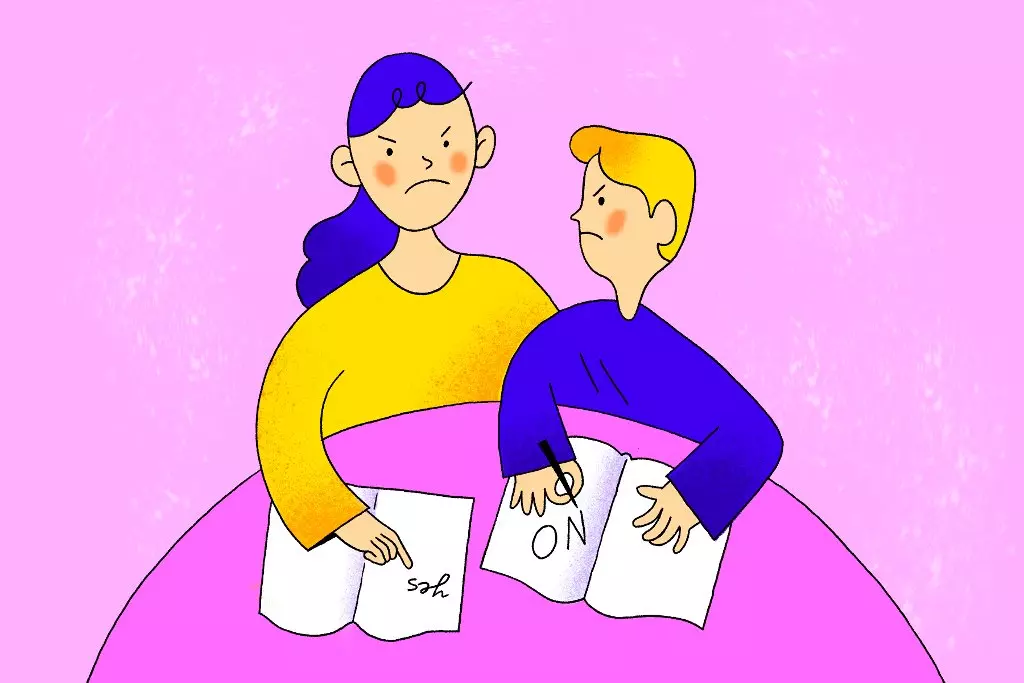
I am his word - he is ten I!
No matter how we strive to grow independent and independent children, we still do not, no, and I want them to listen to us. The first time. Without scandals, disputes and persuasion. Is it at all?
Together with the psychotherapist, Amy Maurein, we disassemble the five main reasons why the child misses your words by the ears or immediately enters the playback due to a trifle request.
You threaten too muchYou consider to see up to three infinite number of times, asking you dramatically: "Well, how much can you talk?!" Or repeatedly declare: "This is the latest warning!" If you are constantly warning about something or threatening something, the child will quickly understand that you really do not care about your words.
Moreover, if you constantly repeat your warnings, the child understands that he has no need to listen to you from the first time - you still repeat your words an infinite number of times.
Express your request once.
If the child did not hear you - put one warning to him, and if it did not help - go to advanced consequences.
Your threats are meaninglessWhen we are angry, we can inflate our threats to completely unrealistic sizes: "If you don't raise your cars from the floor, I will throw out all your toys!"
"If you do not escape in the room, I never let you go for a walk!"
Such monstrous and impracticable threats to you do not help you - they can scare children a lot, and older children have already certainly realized that your promises are empty and will never be fulfilled.
Be sequential.
It is better to suppress the desire to intimidate the child inhuman threats and stick to simple and logical promises.
For example, at least: "If you do not kill in the room, today I will not let you walk you."
You are fighting for powerIt's not so difficult to be drawn into a dispute with a child on any, even the most insignificant occasion. But the longer you behave like three years on the playground: "You will do, as I say!" - "No, I will not!" - "No, you will do!" The longer your child appears to not do what you asked him.
Remember that an adult is you.
This does not mean that you should not give the child the right to express your opinion or bring arguments to its support.
However, if your dialogue has become unproductive pribiings, then it's time to remember which of you is an adult, which should stop these pebbles.
The promised consequences never occurParental inconsistency often becomes the reason why children calmly ignore requests and exhortations, no matter how scary they sound. It is important to be consistent in your promises and show a child that you have real actions for your words: "If you throw back in someone in someone's sand, we will leave the platform," and really go.
If your child knows that the promised consequences will definitely come, he will be more attentive to listen to your words.
Stay in the right mind.
We remind you that violence cannot be considered the logical consequence of any disobedience: "Come here now, or I will give you a belt!"
No warnings justify violence against a child - this is not a disciplinary measure, it is a crime.
You raise the voiceThe easiest and surest way to attract the attention of the child, according to many parents, is to increase the voice or spoil on it. It's not worth doing so too, because the children quickly get used to the scream and learn to ignore it as a background noise.
In addition, parental screams negatively affect the psychological and emotional health of children, which can lead to a violation of communication and issues in the future.
The more you shout on children, the less the chance that they ever listen to you.
If you have discovered one or several listed errors and decide to work on their elimination, you still need time to rebuild your interaction with the child.
Keep calm.
Building effective communication between the parent and child is a long and time-consuming process, which begins with early childhood.
Try to keep calm, be consistent and confident in our decisions, as well as show respect and sensitivity to the psychological state of your child.
Still read on the topic
